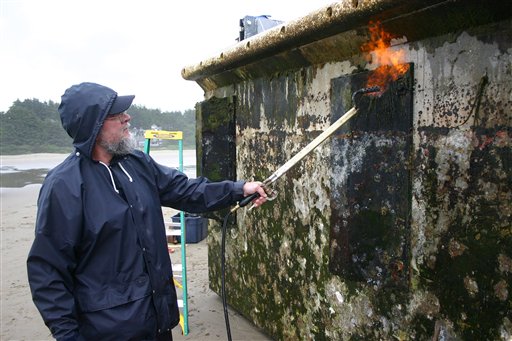JUNEAU, Alaska — The National Oceanic and Atmospheric Administration on Monday announced it will provide $250,000 in grants to five states affected by debris from last year’s tsunami in Japan.
The agency said Alaska, Washington, Oregon, California and Hawaii will each receive up to $50,000 toward debris removal from its marine debris program. Money could be made available as early as this month.
U.S. Sen. Mark Begich, D-Alaska, quickly deemed the amount “woefully inadequate.” He said in a statement that the tsunami created a “slow-motion environmental disaster that will unfold over several years.”
He said $50,000 isn’t enough to even clean up one beach “let alone the type of effort necessary for a large-scale planning and cleanup effort covering multiple states.”
Begich had requested at least $45 million in funding.
A spokeswoman for Alaska Gov. Sean Parnell said that without knowing the size or direction of a possible debris field, it’s premature to comment on how much funding will be needed.
Nancy Wallace, director of NOAA’s marine debris program, said in a release that the agency continues to “actively work” with the states and other federal agencies “to address the challenges associated with tsunami debris.”
The Japanese government has estimated that 1.5 million tons of debris is floating in the ocean from the tsunami.
It’s not clear exactly where, when or how much debris will hit North American shores. Some has already hit, and NOAA said more is expected over the next several years.
The money will not have to be used for cleaning up tsunami debris specifically — just for marine debris, a NOAA spokesman said.
Items from Asia, like buoys and litter, wash up on the U.S. Pacific coast all the time, NOAA said.



